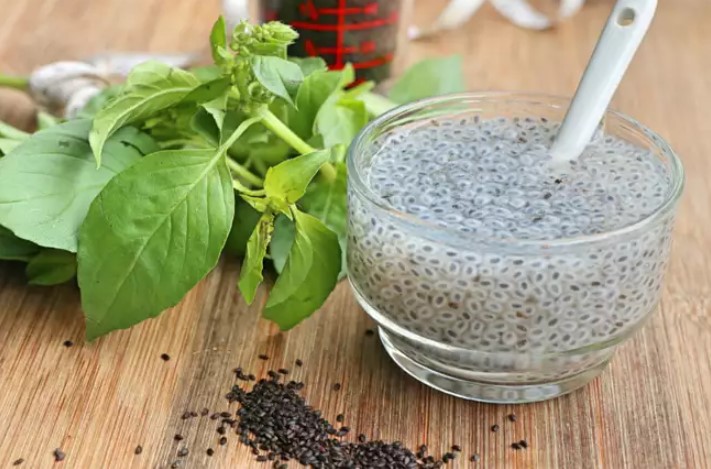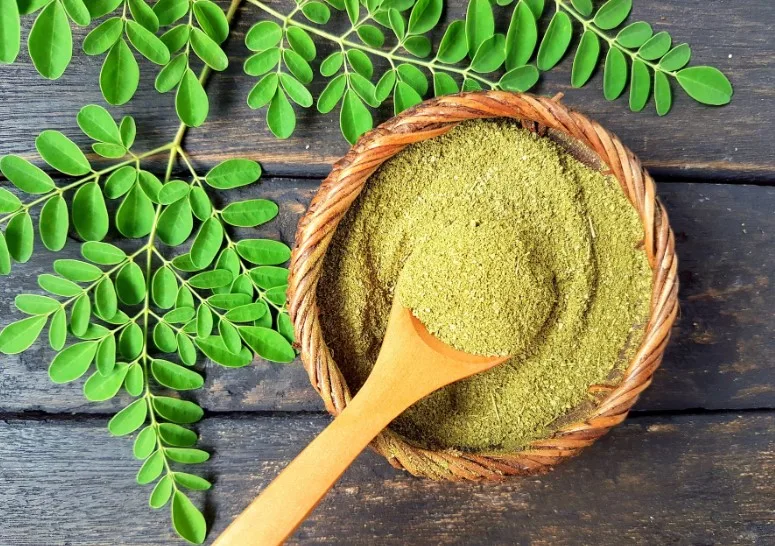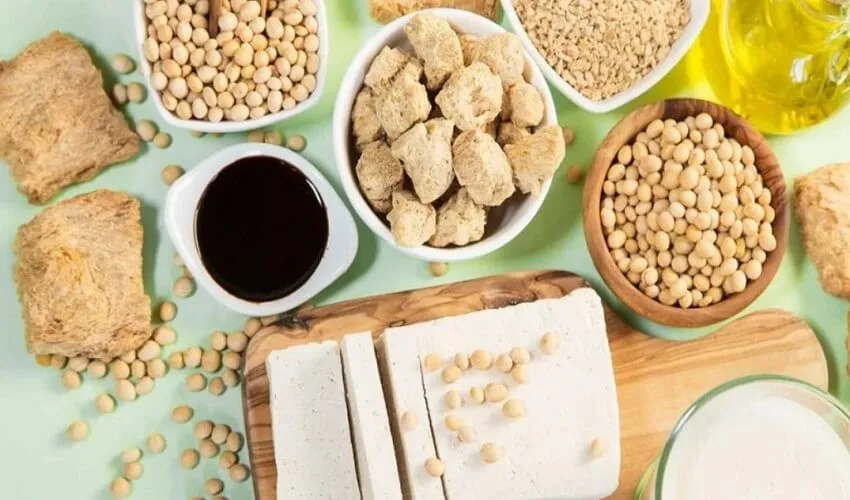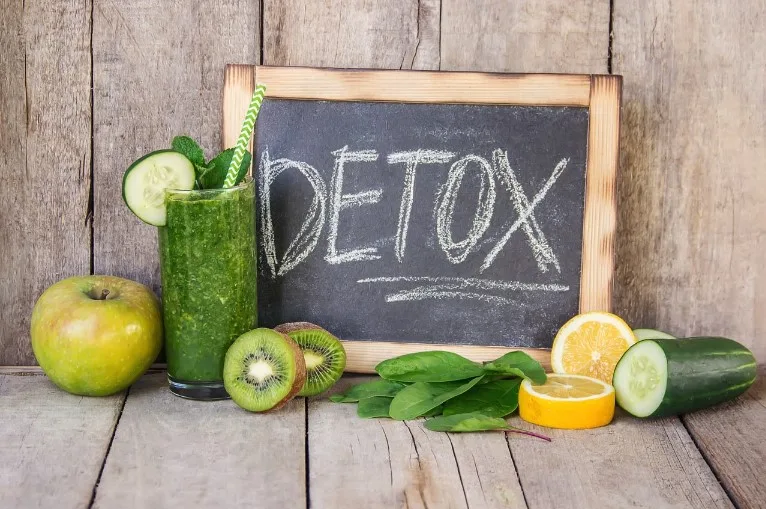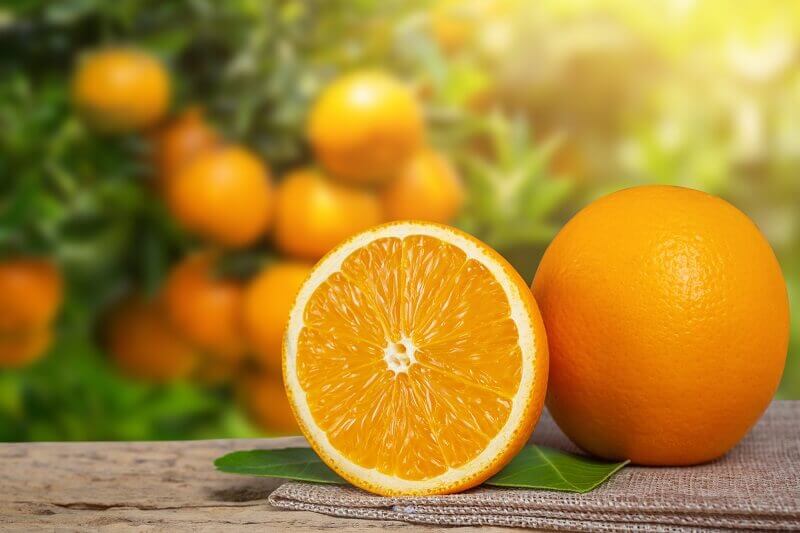Basil seeds can be eaten as well as used to grow basil plants. They resemble sesame seeds but are black. The type you eat is usually made from sweet basil, Ocimum basilicum, which is a plant that is commonly used to season foods.
As a result, the seeds are commonly referred to as sweet basil seeds. They are also known by a variety of other names, including sabja and tukmaria seeds.
Although basil seeds have a long history of use in Ayurvedic and Chinese medicine, their health benefits have only been studied in a few studies.
Benefits and uses of basil seeds.
We explained the benefits and uses of basil seeds below.
Good Minerals Source
According to product nutrition labels in the United States, 1 tablespoon (13 grams or 0.5 ounces) of basil seeds provides 15% of the RDA for calcium and 10% of the RDA for magnesium and iron.
Calcium and magnesium are necessary for bone health and muscle function, respectively, while the iron is required for red blood cell production.
Many people’s diets are deficient in calcium and magnesium. Eating basil seeds may help you meet your daily requirements for these nutrients.
Furthermore, basil seeds may be an important source of iron and calcium for people who do not consume meat or dairy products.
Basil Seeds Contains Fiber
Basil seeds are high in fiber, especially soluble fiber like pectin.
The fiber in basil seeds may benefit your health in the following ways:
- Assists you in meeting your fiber requirements: One tablespoon (13 grams or 0.5 ounces) of basil seeds contains 7 grams of fiber or 25% of the RDI. Only about 5% of Americans consume enough fiber.
- Gut health may be aided: Prebiotic benefits of pectin have been demonstrated in test tubes, implying that it may nourish and increase beneficial gut bacteria. Anti-inflammatory bacteria that promote gut health may be included.
- Controlling blood sugar levels may be added: After eating 10 grams (3/4 tablespoon) of basil seeds in water after each meal for a month, people with type 2 diabetes had 17 percent lower post-meal blood sugar than at the start of the study.
- Cholesterol levels may improve: Pectin may lower blood cholesterol by preventing cholesterol absorption in the intestine. People who consumed 30 grams (7 teaspoons) of basil seeds daily for one month saw their cholesterol level drop by 8%.
Thickener and Stabilizer with No Flavour
Because it is flavorless and can help thicken and stabilize mixtures, the fibrous, pectin-rich gum from basil seeds could be a valuable ingredient in the food industry.
When compared to standard ice cream formulations, it can stabilize ice cream and reduce the growth of unwanted ice crystals by 30–40%.
Basil seed gum can also be used to stabilize salad dressing, low-fat whipped cream, and jellies, as well as replace fat in yogurt and mayonnaise.
These seeds can also be used to thicken recipes such as desserts, soups, and sauces by home cooks.
Basil Seeds Huge Plant Compounds
Plant compounds such as flavonoids and other polyphenols are abundant in basil seeds.
Flavonoids are antioxidants, which means they protect your cells from free radical damage. These plant compounds are also anti-inflammatory and anti-cancer
Several observational studies have linked higher flavonoid intake to a lower risk of heart disease.
Furthermore, in a test-tube study, basil seed extract killed harmful bacteria and caused cancer cells to die (20).
However, there has been little research into the potential health benefits of basil seeds. These advantages have not been tested in humans or with whole seeds.
Pleasurable and Stringy Beverage Ingredients
In India and Southeast Asia, basil seeds have long been used in drinks.
Falooda is a popular cold beverage-like dessert in India made with basil seeds, rose-flavored syrup, and milk. Some recipes include ice cream, noodles, or fruit.
In addition, a few food companies in the United States and Europe are now selling bottled beverages made with basil seeds.
The seeds give the drinks a chewy texture and a lot of healthy fiber, which is something that most beverages lack.
Omega-3 Fat from Plants
A 1-tablespoon (13-gram or 0.5-ounce) serving of basil seeds contains approximately 2.5 grams of fat. This varies according to the growing conditions.
About half of this fat — 1,240 mg per tablespoon — is omega-3 fat alpha-linolenic acid (ALA).
There is no RDI for ALA, but an adequate intake of this essential fatty acid is 1,100 mg or 1,600 mg per day for women and men, respectively.
As a result, just one tablespoon of basil seeds could provide the majority — if not all — of your daily ALA requirements.
ALA is primarily used by your body to generate energy. It may also have anti-inflammatory properties and lower your risks of certain diseases, such as heart disease and type 2 diabetes.
Chia Seeds Great Alternative
Basil seeds are slightly larger than chia seeds, but they have a comparable nutritional profile.
Here’s how 1 tablespoon of seeds (13 g or 0.5 ounces) compares.
| Ingredients | Basil seeds | Chia seeds |
| Calories | 60 | 60 |
| Total fat | 2.5 grams | 3 grams |
| Omega-3 fat | 1,240 mg | 2,880 mg |
| Total carbs | 7 grams | 5 grams |
| Dietary fiber | 7 grams | 5 grams |
| Protein | 2 grams | 3 grams |
| Calcium | 15% of the RDI | 8% of the RDI |
| Iron | 10% of the RDI | 9% of the RDI |
| Magnesium | 10% of the RDI | 8% of the RDI |
The most observable nutritional differences are that chia seeds contain more than twice as much omega-3 fat as basil seeds but slightly less fiber.
When soaked, chia seeds and basil seeds swell and form a gel. Basil seeds, on the other hand, swell faster and to a larger size than chia seeds.
Because both seeds have a neutral flavor, they can be used in many of the same recipes, such as smoothies and baked goods.
Chia seeds can be eaten dry — for example, sprinkled on a salad — whereas basil seeds are typically not eaten dry because they are difficult to chew.
Easy to Use
Basil seeds can be found in Asian grocery stores and online if you search for edible basil seeds. Planting seeds are typically more expensive per ounce and may have been treated with pesticides.
Soaking basil seeds is usually the first step in eating them.
Soaking the Seeds: To soak basil seeds, add 8 ounces (237 mL or 1 cup) of water per 1 tablespoon (13 g or 0.5 oz) basil seeds.
More water can be added if desired, as the seeds only absorb as much as they need. If you use too little water, the seeds may clump as they hydrate.
Allow the seeds to soak for 15 minutes. The seeds roughly triple in size as they swell. In addition, the gel-like outer portion greys.
A soaked basil seed retains its black center. When chewed, this part has a light crunch, similar to tapioca.
Strain the soaked basil seeds and incorporate them into your recipe. Pre-soaking is not required for recipes that contain a lot of liquid, such as soup.
Usage of Basil Seeds
Their bland flavor easily blends into dishes. For example, basil seeds can be used in:
- Smoothies
- Milkshakes
- Lemonade and other drinks
- Soups
- Salad dressings
- Yogurt
- Pudding
- Hot cereal like oatmeal
- Whole-grain pancakes
- Whole-grain pasta dishes
- Bread and muffins
When using basil seeds in baked goods, grind them and replace some of the flour instead of adding them soaked.
Alternatively, soaked basil seeds can be used in place of eggs in baked goods. To replace 1 egg, soak 1 tablespoon (13 grams or 0.5 ounces) basil seeds in 3 tablespoons (1.5 ounces or 45 ml) water.
Possible Side Effects
Basil seeds’ high fiber content may cause digestive side effects such as bloating. It’s best to gradually increase your fiber intake to give your gut time to adjust.
Furthermore, one basil seed supplier claims that one tablespoon of basil seeds contains 185 percent of the RDI for vitamin K. (0.5 ounces or 13 grams).
Vitamin K promotes blood clotting. As a result, eating basil seeds may interfere with warfarin and other blood-thinning medications.
The Bottom Line
Basil seeds are high in fiber, a good source of minerals, a good source of plant-based omega-3 fat, and high in beneficial plant compounds.
After soaking them in liquid, you can eat them. Basil seed beverages have long been popular in India and Southeast Asia, and they are now gaining popularity in the United States.
Hope you are enjoining the usage benefits of Basil seeds. for more articles visit healthfyy

